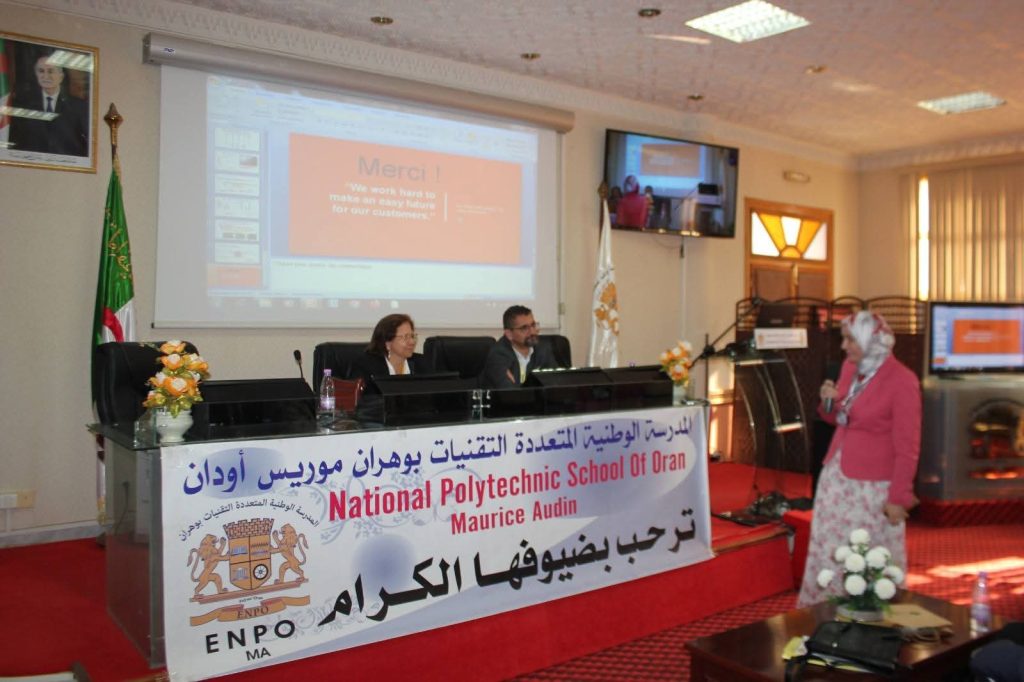As Algeria grapples with mounting water stress and the urgent realities of climate change, universities and researchers are stepping forward with innovative solutions.
From advancing desalination technologies to promoting smarter water management in agriculture and industry, the scientific community is playing a critical role in safeguarding the country’s water future.
Challenges for Universities and Scientific Research
Water resource sustainability and water security are everyone’s business. That was the central message conveyed by academics and researchers during the recent scientific symposium on “Water Security and Climate Resilience in Algeria,” held at the Maurice Audin National Polytechnic School in Oran. In the face of growing water stress, which threatens Algeria like many other countries, universities are more than ever being called upon to rise to the challenge. Their mission: to propose innovative and effective solutions for water resource management and to affirm their commitment to this cause.
Climate urgency has turned all indicators red, the participants at the event emphasized. According to Professor Hassiba Bouabdesselam, project leader of the Desalination Center of Excellence, “It is vital to ensure water security and sovereignty in the face of the climate emergency. This water sovereignty relies primarily on seawater desalination for coastal populations.” Scientific knowledge, she added, must serve the public and contribute to improving living conditions. However, while desalination is seen as a key solution to water stress, it is also highly energy-intensive and produces brine—whose disposal poses a significant environmental challenge. On this point, Professor Bouabdesselam stated: “The university’s role is to work on optimizing energy consumption and finding ways to valorize the brine, which currently has no negative impact on marine fauna and flora due to its dilution.”
Desalination Membranes: A Strategic Issue
Another pressing issue for universities and scientific research is the desalination membranes used in reverse osmosis systems. These semi-permeable materials are crucial for separating water from salts and impurities during the desalination process. The cost of membranes for a single desalination plant can run into the millions of dollars, an expense that significantly strains the national budget, especially considering the need to replace membranes after limited use.
The academic challenge is therefore to extend the lifespan of these membranes—and ultimately, as Professor Bouabdesselam suggests, to manufacture them locally in Algeria. “This is a matter of sovereignty: without membranes, the entire desalination system comes to a halt,” she stressed. In this context, research has been carried out at the Oran Polytechnic School by Dr. Khadidja Benyahia, a researcher in the process engineering department. Her work focuses on protecting reverse osmosis membranes and ensuring the sustainability of the desalination process.
The studies aim to optimize the pretreatment phase to extend membrane lifespan by up to two years. Key improvements included addressing membrane clogging by replacing traditional sand filters with newly developed filters known as filtralites, and integrating membrane technologies such as microfiltration. In an environmentally conscious approach, Dr. Benyahia also explored reusing reverse osmosis membranes through chemical treatment in the lab. This technique involves removing the fouled active layer and repurposing the used membrane for applications such as wastewater treatment.
Excessive Water Consumption in Industry and Agriculture
University research has clearly shown that industry and agriculture are the largest consumers of water. While public awareness campaigns often target households to reduce water waste, another scientific frontier is emerging, according to Professor Mustapha Kamel Mihoubi, a researcher at the National School of Hydraulics. He advocates for the adoption of smart, water-saving technologies—particularly within the framework of a circular economy—to enhance water management in these sectors.
He emphasizes the importance of calculating water footprints, a key metric for ensuring sustainable resource management. “Assessing the water footprint enables policymakers to make timely and informed decisions,” he noted. According to Professor Mihoubi, the water issue is a cross-cutting one: it involves not only the Ministry of Higher Education and Scientific Research, but also those of Education, Religious Affairs, and Environment. It is, therefore, high time to consider drafting a national water conservation charter to guarantee the long-term sustainability and security of this vital resource.

